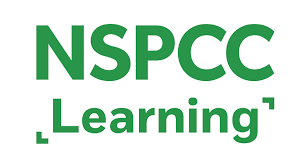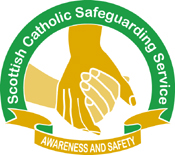What can faith communities do to prevent child sexual abuse?
Have a culture of safe recruitment and supervision
Recruitment must go beyond PVG and Disclosure checks. It is important to remember that the majority of child sexual abuse is not reported, so unless a person has had a conviction in the past, PVG does not identify all those who may pose a risk to children.
Having a safer recruitment policy statement in place is a vital step towards keeping the children and young people who have contact with your staff and volunteers safe. But it's also important to establish clear written procedures and make sure everyone who is involved with any form of recruitment knows how to follow them.
These will ensure that staff and volunteers are recruited safely and fairly, and that children’s safety is being considered at every stage of the process.
Have a clear safeguarding or child protection policy.
This should include clear identification of who is responsible for child protection and how adults (e.g. staff, volunteers, parents, members of the community) can raise any concerns that they may have as well as what should happen if a child raises concerns about the actions of an adult or another child.
Inform members of the faith community
Members of the faith community should know the behaviours in children and adults which may be concerning. Information about this can be found in the KNOW and LEARN sections of this website
Understand what to do if they are worried
If a member of the faith community is concerned about behaviour they need to know the action that they should take. This information can be found in the IDENTIFY, PREVENT and ACT sections of this website.
Specific Faith organisation guidelines
Some safeguarding procedures and guidance can be found below. These are provided for information only and we are not responsible for the contents within their procedures and some may be England specific.
We are collecting faith organisation guidelines for inclusion - If you know of other guidance which could be included here or have comments on the ones shown, please let us know.
Child Protection in Faith communities
Churches and faith-based groups play an important role in the lives of many children, young people and adults.
People who contribute to the life of faith-based communities and places of worship have a role to play in keeping people safe.
They also play a vital role in responding effectively and compassionately when someone comes forward to share concerns or disclose abuse.
Nurturing, respecting and caring for children are part of the teachings and values of all major faiths.
There is a general expectation to care for all life and a duty to support those in society who most need care and protection.
Recognising the shared aim to provide a safe environment for children can help bring child sexual abuse prevention into faith practices.
Challenges and barriers
When looking at challenges and barriers to safeguarding in faith-based communities, common themes include:
|
- The trust people have in religious leaders, which both creates opportunities for abuse, and makes it less likely that victims will be believed if they accuse a religious community leader - The difficulty people have in thinking that someone of their own faith would abuse another member of that same faith, tied with the desire not to damage the reputation of the faith group by exposing such individuals - An attitude of welcome and inclusion, which makes religious communities susceptible to people who wish to enter them in order to abuse. This can be tied up with issues of forgiveness and second chances - Blurred boundaries between adults and children, for example on pilgrimages and other trips - Reliance, especially at the level of individual congregations, on volunteers to handle safeguarding issues; volunteers who will have varying degrees of knowledge and confidence, and who can easily walk away if not properly supported - A concern for organisational reputation, stemming at least in part from the status of religious groups as morally good organisations. This status is threatened by abuse within the organisation, and appears to be a consideration in the repeated covering up of potential scandals in a number of faith groups. - Community organisations/charities, faith groups – especially smaller ones – may have limited resources to devote to safeguarding - Many lack a culture of safe recruitment, supervision, human resources and other management structures which can lead to accountability and transparency - Tension between religious laws and customs and statutory requirements |
Safeguarding in faith communities
 |
The NSPCC has released an episode of its child protection podcast series on Faith based communities. This episode focuses on what safeguarding means to faith communities and groups. The podcast discusses the important role faith communities play in children and young people’s lives, and covers topics including: why faith groups need to understand their safeguarding responsibilities; the challenges that safeguarding children and young people in faith communities brings; and how faith communities can develop a safeguarding culture that works alongside other cultural beliefs, values and customs. Access further information on Safeguarding in faith communities |
Did you know?
As of 31/10/19 there were 4336 registered sex offenders living in the community in Scotland
Source - Police Scotland
Read more








